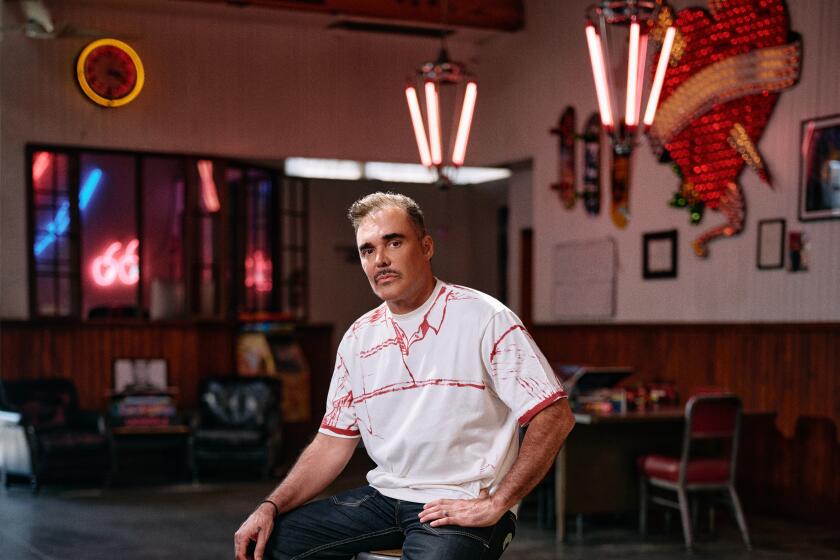Daddy dearest
First novels come in various shapes and sizes. There’s the modest little first novel that wisely sticks to what the writer knows, while others feel straight-faced, strait-laced and taut -- finely crafted but too much the product of the MFA program and the workshop. Reckless ones shoot for the moon, and many such fail and remain moldering in a bottom drawer, or else, like John Fowles’ “The Magus,” they end up being published only after the writer has burst through the gates with a more obviously commercial effort.
Then, occasionally, a big, sprawling first novel fights its way into print with a flourish, at which point its ambition and the eccentricities of its “firstness” can become its best marketing tools. Such is the case with Australian writer Steve Toltz’s “A Fraction of the Whole,” a book that is willfully misanthropic and very funny, a meditation on the inescapable legacies that fathers bequeath their sons and the overall toxicity of family. In “A Fraction of the Whole,” it’s not only Mum and Dad who screw you up; siblings get in on it too.
The novel’s primary narrator is young Jasper Dean, who sets out to tell the story of his father, Martin, and his uncle Terry. As in much comedy, exaggeration is a frequently and effectively employed tool here. “Most of my life I never worked out whether or not to pity, love, hate, ignore, adore, judge or murder my father,” writes Jasper, laying out a palette of Oedipal possibilities broad enough to satisfy any budding Hamlet. But, having invoked his theme, Toltz has the daring to take us on a long detour, introducing father Martin’s version of the Dean family chronicles, beginning with how he slips into a coma shortly before his half brother Terry’s birth. When Martin finally wakes up, he remains sickly but remembers every single word of the many books his mother read to him while he was asleep. He’s insufferably smart, ugly and filled with an acute self-loathing. Terry, on the other hand, is handsome and outgoing, a brilliant young athlete possessed of an unassuming and effortless charm.
Terry’s life changes when his leg is wrecked in a knife fight and he can’t play the sports at which he excels. His energy, flipped into rage, pours instead into a life of crime. He turns to robbing banks and achieves national celebrity after taking very public, violent revenge on members of the Australian cricket team who’ve been accepting bribes. Terry becomes a folk hero, a latter-day Ned Kelly. Along the way, he and Martin fall for the same girl, the lovely Caroline Potts. “I wanted her for myself. I wanted my brother’s happiness. I wanted him safe. I wanted him free of crime and danger. But most of all I wanted her for myself,” says Martin, in a pickle as usual.
The hyper-smart Martin never quite knows what he wants. His intense musing and philosophizing somehow guarantee that every time he decides to turn thought into action, the choice, though seemingly well-intended, opens a Pandora’s box. Terry dies in a fire, and Martin goes into self-imposed exile, searching for Caroline but having a child, Jasper, with another woman.
“Living in Australia is like having a faraway bedroom in a very big house,” thinks Martin Dean, and “A Fraction of the Whole” captures the dark strangeness of that continent. “Five hours later we were still flying over Australia . . . , “ says Jasper. “You can’t believe how it goes on and on. To appreciate the harrowing beauty of the interior you have to be in the middle of it, with a well-stocked escape vehicle. Topographically it’s incomprehensible and terrifying. Well, that’s the center of our country for you. It’s no Garden of Eden.” Jasper and his dad finally come home, precipitating the novel’s climax, another combination of the tragic and the hilarious. The writing brings to mind not so much Toltz’s compatriots Patrick White or Peter Carey as John Irving, a contemporary master of the type of narrative Dickens called “streaky bacon,” juxtaposing disparate shades and tones through the unifying effect of voice.
Like Irving, Toltz makes minor characters jump off the page with a few strokes. There’s the fierce Anouk, who scratches up Martin’s adored MGB, so naturally Martin insists on getting involved with her. “She ate with us regularly,” Jasper writes, “argued with us constantly, and introduced me to a breed I’d never encountered before, a left-wing, art-loving, self-proclaimed ‘spiritual person’ who chose to convey her gentle ideas about peace and love and nature by screaming at you.” By novel’s end, Anouk will be transformed into Australia’s richest woman, but she can’t save the Deans as Martin completes his blazing odyssey of self-destruction and Jasper seeks to shrug off the pain that can pass between generations like a poisonous heirloom. “Now that I’ve told our story in all its fist-eating, gut-wrenching, seat-edging, nail-biting, lip-pulling, chain-smoking, teeth-clenching detail, do I feel better or worse?” Jasper asks himself.
Toltz leaves us with a harrowing vision of family life. It’s no Garden of Eden. He’s a superb, disturbing phrasemaker -- “Sex: the match that sets off human fireworks. In our loveless palace we’ve built a child,” notes Martin in his diary. But this long novel, which lives or dies in the brilliance of its writing, has, too, a subtle, compelling structure. The plot is, to say the least, eventful, and while some twists seemed predictable, I loved the wild ride. “A Fraction of the Whole” soars like a rocket.
More to Read
Sign up for our Book Club newsletter
Get the latest news, events and more from the Los Angeles Times Book Club, and help us get L.A. reading and talking.
You may occasionally receive promotional content from the Los Angeles Times.







